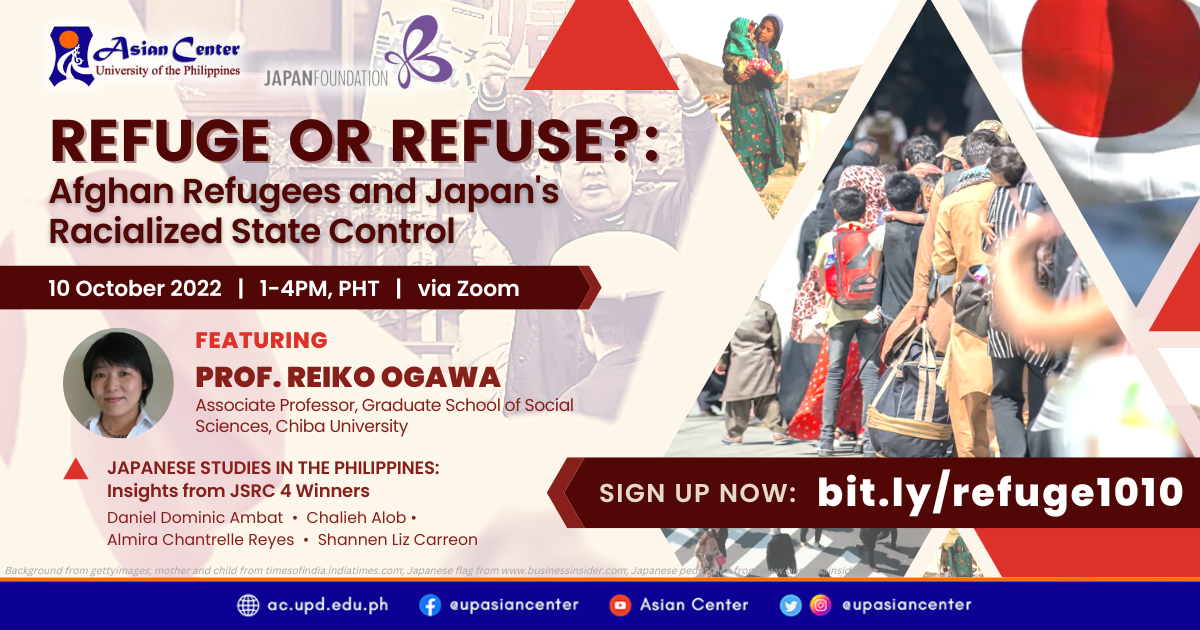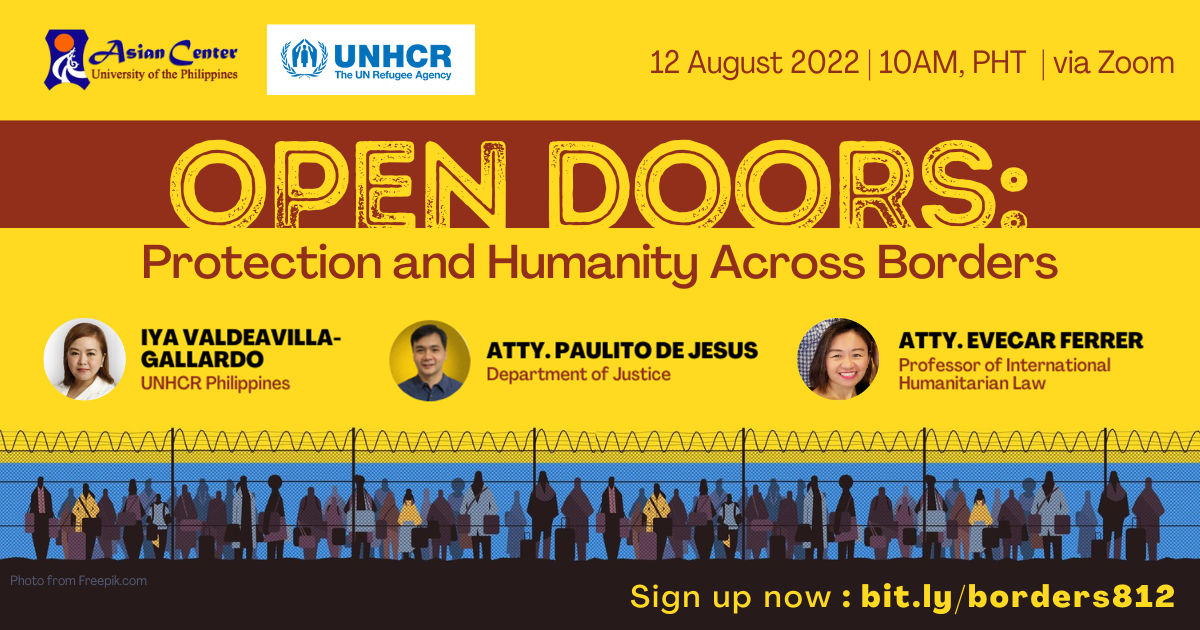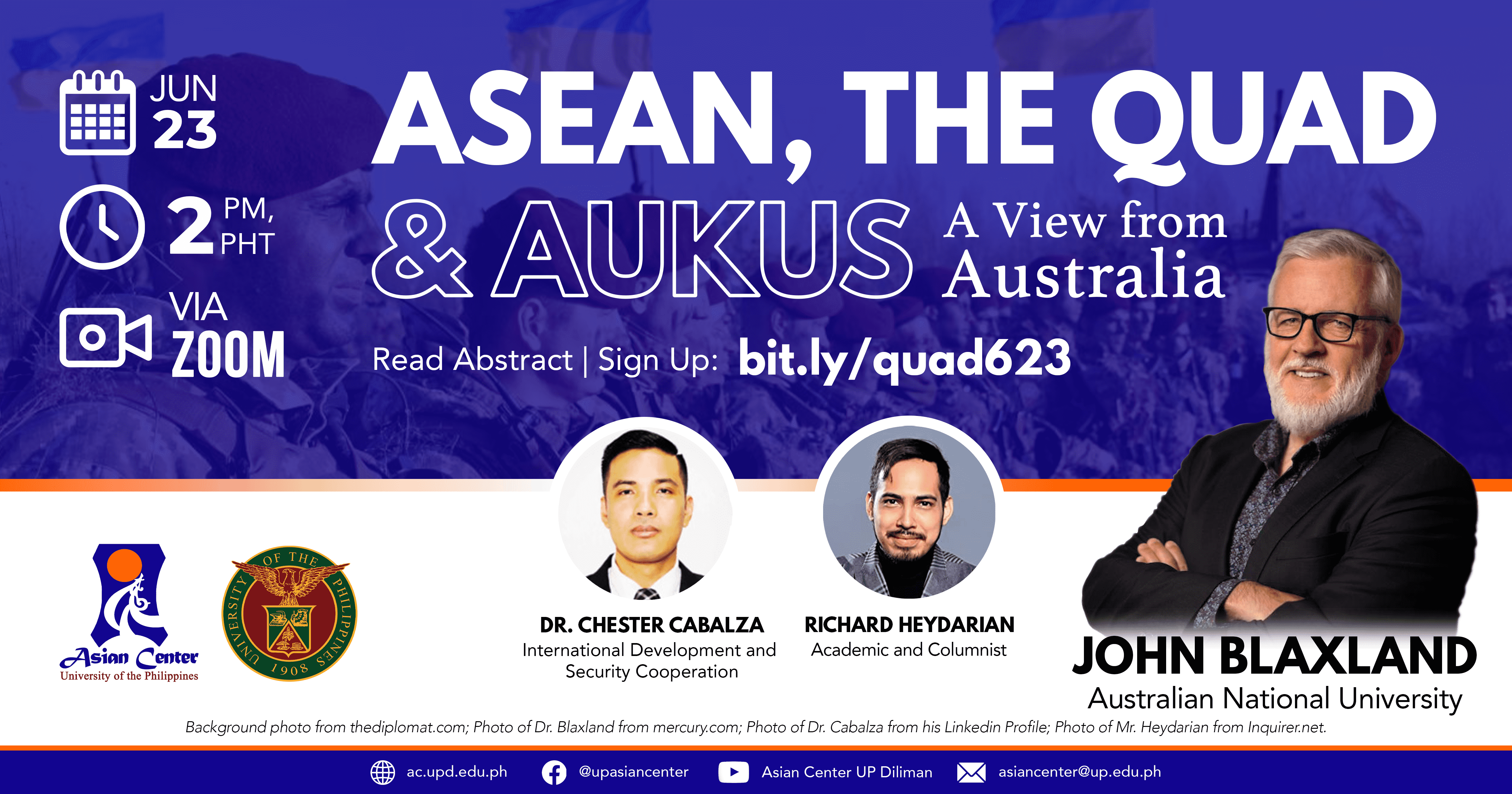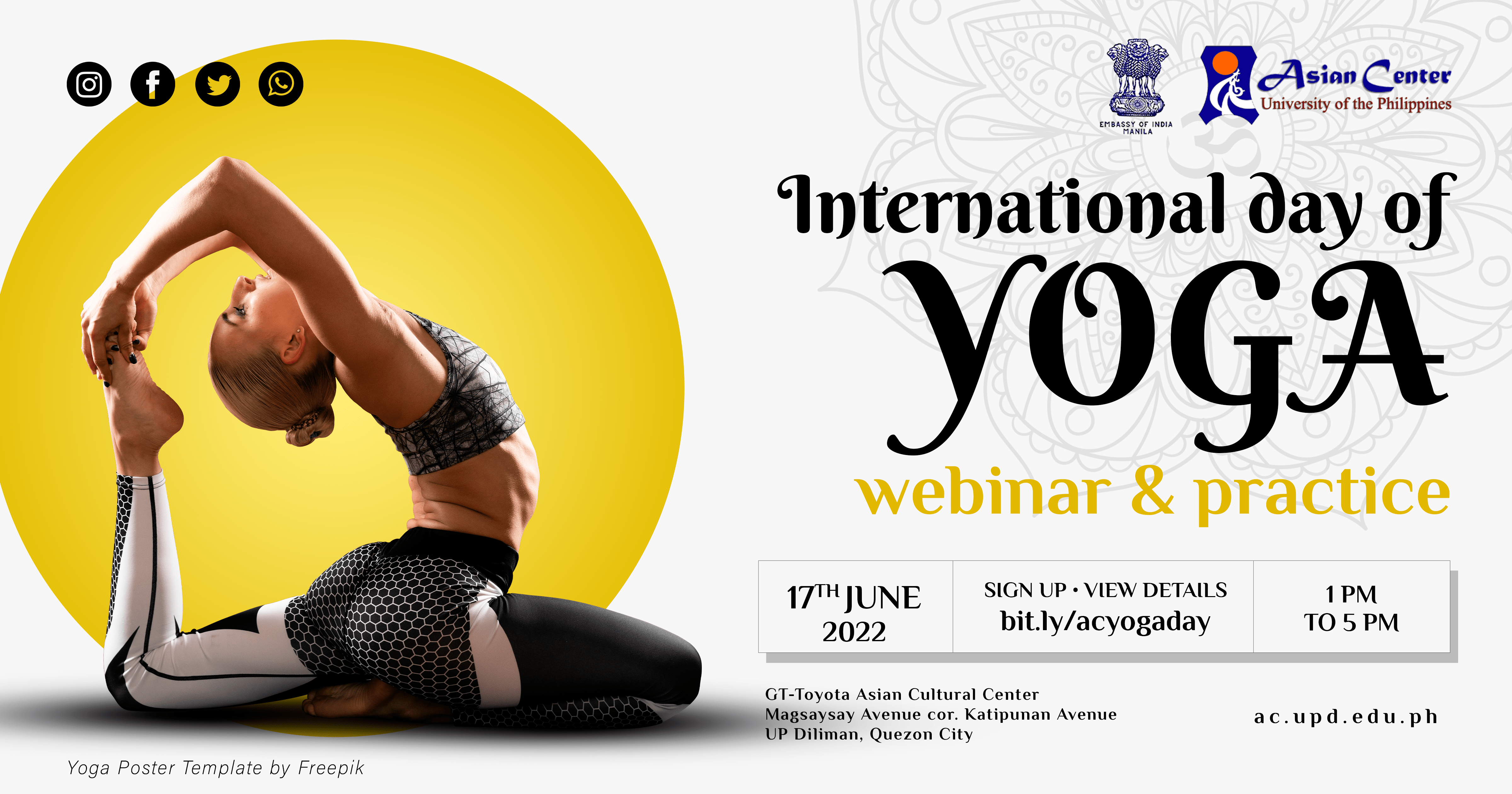
Ambassador Elizabeth Buensuceso’s lecture, “ASEAN Centrality: UP Close and Personal” delivered in a webinar on 14 August 2020, is now available on YouTube.
ABOUT THE LECTURE
Amb. Buensuceso provided an “insider’s” account of ASEAN’s principle of centrality. In her study, she gave three dimensions of the concept’s definition—an expression of leadership in the region; a principle of ASEAN diplomacy with ASEAN playing the dominant role; and an aspiration to raise the level of awareness about ASEAN. Her recommendations on future research on ASEAN centrality revolved around chairmanship, effect of external partners on the principle’s operationalization, as well as the utilization of autoethnographies in documenting diplomats’ experiences.
REACTORS
The reactors who shared their insights on the lecture consist of esteemed diplomats and scholars: H.E. Helen Dela Vega, Philippine Ambassador to Australia; Mr. Bala Kumar Palaniappan, Director of External Relations at the ASEAN Political-Security Department; and Dr. Joefe Santarita, Dean of the UP Asian Center.
Important points from the reactors discussed ASEAN centrality from within the organization, the illustration of ASEAN Centrality and unity in current affairs, the importance of individual actors within institutions, and the ASEAN Centrality as a method, instead of merely a concept.
ORGANIZER
In celebration of the 53rd founding anniversary of the Association of Southeast Asian Nations (ASEAN), this webinar was organized by the UP Asian Center in partnership with the ASEAN Studies Graduate Program of the Faculty of Management and Development Studies, UP Open University.
The UP Asian Center offers M.A. degrees in Asian Studies with four fields of specialization: Northeast Asia, Southeast Asia, South Asia, and West Asia. The Center also has an M.A. program in Philippine Studies that allows students to major in Philippine society and culture, Philippine foreign relations, or Philippine development studies. The Center offers a Ph.D. program in Philippine Studies in conjunction with the College of Arts and Letters and the College of Social Sciences and Philosophy. For an overview of these graduate programs, click here. The Asian Center also publishes Asian Studies: Journal of Critical Perspectives on Asia, the latest issue of which can be downloaded at the journal's website. For other news and upcoming events at the Asian Center, click here.






